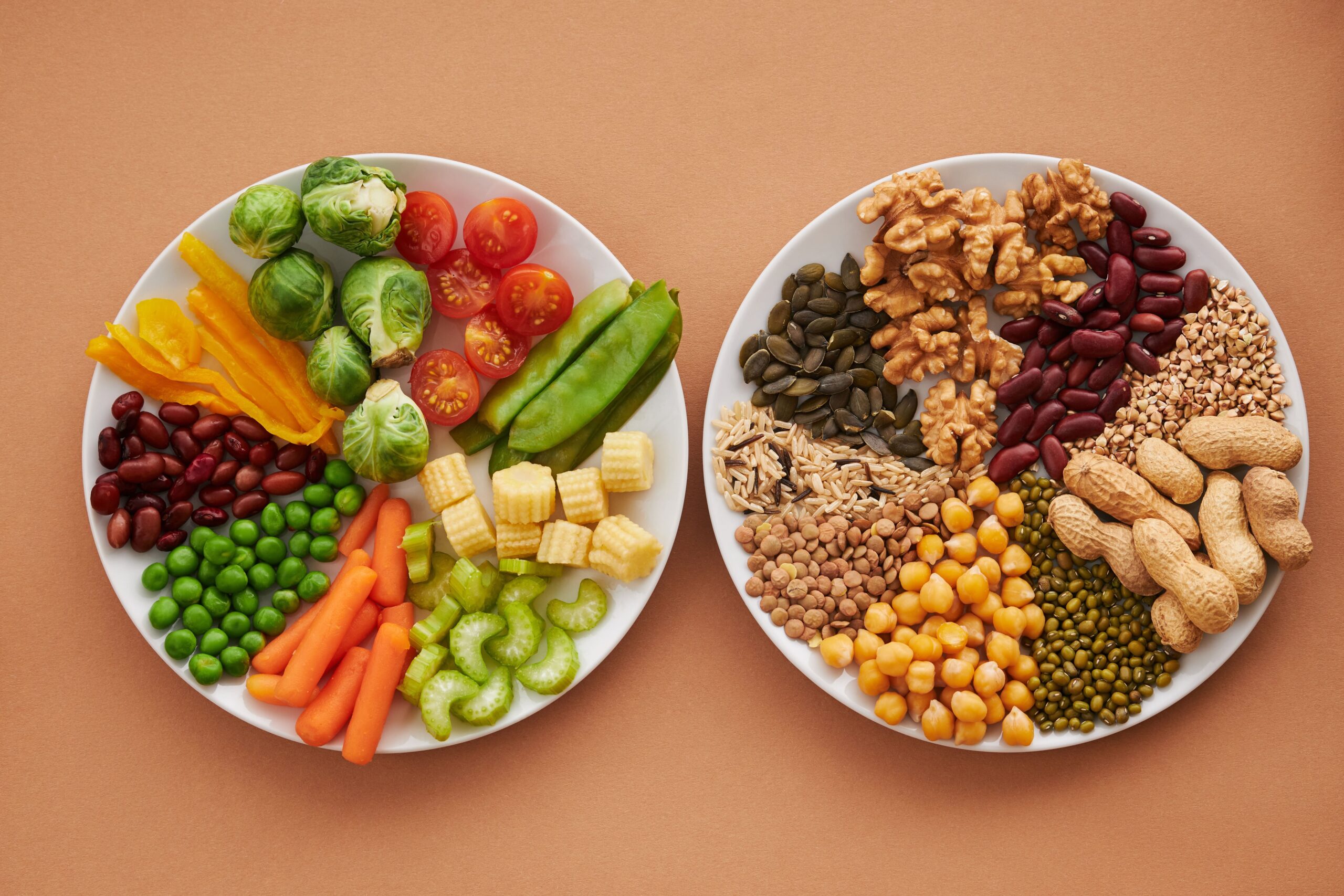Specific Tips and Strategies for Optimal Nutrition and Growth on a Plant-Based Diet
Introduction: Eating healthy on a vegetarian diet can be both delicious and nutritious. Whether you’re a lifelong vegetarian or exploring plant-based eating for the first time, it’s essential to make informed choices to ensure you get all the nutrients your body needs. In this article, we’ll provide specific tips and strategies to help you maintain a balanced and healthy vegetarian diet.

-
Diversify Your Protein Sources:
- Opt for a variety of plant-based protein sources such as beans, lentils, tofu, tempeh, and edamame.
- Include nuts and seeds like almonds, chia seeds, and pumpkin seeds in your diet to increase protein intake.
-
Don’t Skip Legumes:
- Legumes like chickpeas, black beans, and kidney beans are rich in protein, fiber, and essential minerals. Use them in salads, stews, and curries.
-
Prioritize Whole Grains:
- Choose whole grains like brown rice, quinoa, whole wheat pasta, and oats over refined grains for added fiber and nutrients.
-
Embrace Leafy Greens:
- Leafy greens such as kale, spinach, and Swiss chard are packed with vitamins, minerals, and antioxidants. Use them in salads, smoothies, or stir-fries.
-
Include a Variety of Vegetables:
- Consume a rainbow of vegetables to ensure you get a wide range of nutrients. Incorporate broccoli, bell peppers, carrots, and more into your meals.
-
Plan Balanced Meals:
- Aim for a mix of carbohydrates, proteins, and healthy fats in each meal to maintain energy levels and keep you feeling full.
- Combine grains, vegetables, and a protein source like tofu or legumes for balanced vegetarian meals.
-
Fortify with B12:
- Vitamin B12 is primarily found in animal products. If you’re vegan, consider fortified foods or supplements to ensure you meet your B12 needs.
-
Healthy Fats:
- Include sources of healthy fats such as avocados, nuts, seeds, and olive oil in your diet for heart health and satiety.
-
Watch for Hidden Sugars:
- Processed vegetarian products may contain added sugars. Read labels to make informed choices and limit sugar intake.
-
Stay Hydrated:
- Drink plenty of water throughout the day to support overall health and digestion.
-
Plan Your Snacks:
- Prepare healthy snacks like sliced vegetables with hummus, Greek yogurt with berries, or a small handful of nuts to prevent unhealthy snacking.
-
Mindful Eating:
- Pay attention to portion sizes and listen to your body’s hunger cues. Avoid mindless eating in front of the TV or computer.
Conclusion: Eating healthy on a vegetarian diet is not only possible but also beneficial for your health and the environment. By following these specific tips and strategies, you can ensure that you’re getting the essential nutrients your body needs while enjoying a diverse and delicious range of plant-based foods. Remember to consult with a healthcare professional or registered dietitian for personalized guidance on your vegetarian diet.






